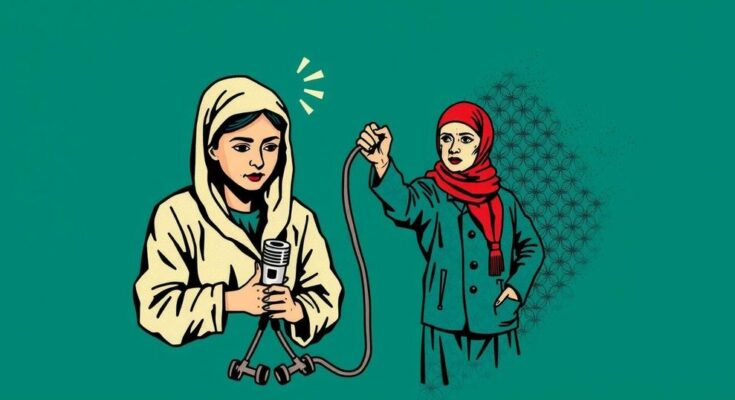Iran’s government has weaponized reproductive healthcare against women, criminalizing abortion and restricting contraceptive access, particularly in marginalized regions. The establishment of over 200 anti-abortion centers, influenced by security agencies, has compounded discrimination against vulnerable women. CHRI calls for international intervention to repeal oppressive laws and ensure healthcare access for all Iranians, highlighting the dire consequences of these policies on women’s autonomy and wellbeing.
Iran’s Islamic Republic has intensified its assault on women’s reproductive rights, wielding healthcare restrictions as instruments of political oppression. Abortion has been criminalized, and access to contraceptives is severely limited. The authorities are directing women, especially from marginalized backgrounds, to anti-abortion centers influenced by security agencies, creating greater barriers to reproductive autonomy. A recent investigation by the Center for Human Rights in Iran (CHRI) revealed that these measures are particularly devastating for women in economically disadvantaged areas. According to Hadi Ghaemi, executive director of CHRI, the regime’s actions are part of a broader strategy to exert control over women’s bodies and lives. This regression in women’s rights is also tied to increased discrimination against minorities and those from poorer regions. The lack of safe reproductive healthcare compromises the agency of Iranian women, pushing them into a cycle of oppression and fear. CHRI urges international bodies to pressure Iran to repeal restrictive reproductive laws and ensure healthcare access for all women, irrespective of their socioeconomic status. The proliferation of over 200 anti-abortion centers is not merely an administrative act but a targeted strategy to enhance political control over vulnerable communities. A legal insider noted these initiatives stem directly from the ruling powers, aimed at subjugating women, often without legitimate NGO participation or oversight. The anti-abortion centers, according to Iranian officials, employ tactics that involve family members in encouraging women to withdraw their abortion requests, violating notions of privacy and individual autonomy. Collaborating with armed organizations like the IRGC’s Basij, these centers not only distort healthcare but also establish a climate of fear that dissuades women from pursuing their legal rights. The draconian 2021 legislation, which further constrains access to abortion and family planning, reflects a cruel shift in reproductive health policy that criminalizes necessary medical procedures. Critics like Saeid Dehghan emphasize that these regulations are against international human rights laws and Iranian constitutional rights, serving only to intimidate both women and healthcare providers. They reinforce a system that prioritizes control over compassion, resulting in many women resorting to dangerous underground procedures. UN experts lament the extensive criminalization of reproductive rights, highlighting its disproportionate impact on marginalized women. This situation illustrates a legal and health crisis where women are stripped of autonomy while facing dire consequences for accessing basic care. The Iranian government’s fixation on birth rates, as indicated by past decrees, reveals a terrifying fusion of nationalism with reproductive oppression, leading to an unprecedented loss of rights and safety for women across the nation.
The article sheds light on the oppressive reproductive healthcare landscape in Iran, where strict laws have been enacted to limit women’s access to abortion and contraceptive services. This situation directly impacts marginalized women, further exposing layers of systemic discrimination and political control. After a 2014 decree focusing on demographic growth, the Iranian government’s policies have spiraled into a comprehensive assault on women’s rights, leading to dangerous consequences for their health and autonomy. The landscape is informed by an alarming partnership between healthcare entities and repressive governmental structures, aiming to suppress women’s freedom while fueling fear and uncertainty about their reproductive choices.
In conclusion, Iran’s political machinery has turned women’s reproductive health into a battleground for control and repression. With increasing restrictions on abortion and contraceptive access, the state has fostered an environment where women’s rights are systematically dismantled. International bodies must act to hold the Iranian government accountable, urging the restoration of women’s autonomy and security. The fight for reproductive rights in Iran illuminates broader issues of gender oppression, underscoring the critical importance of safeguarding women’s health and dignity against political agendas.
Original Source: iranhumanrights.org



